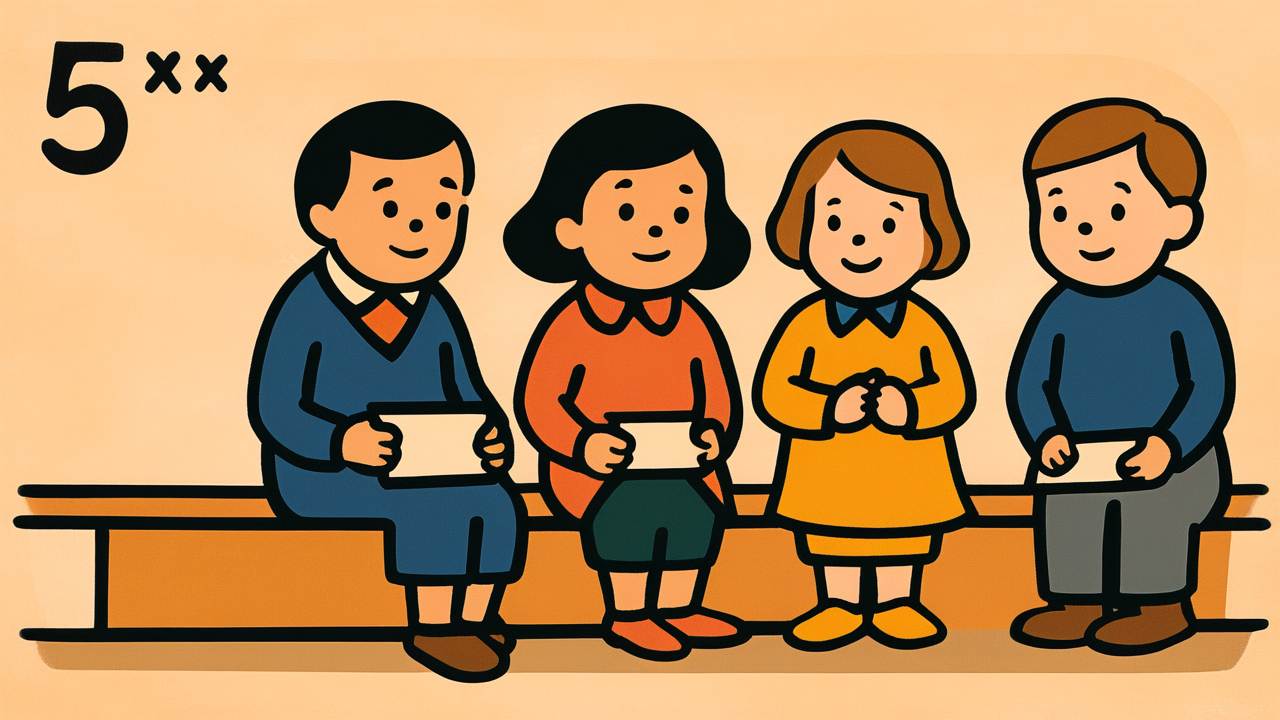How to Read “六十の三つ子”
rokujū no mitsugo
Meaning of “六十の三つ子”
“Sixty’s triplets” means that even when people reach sixty years old, they continue to possess the same innocence and naivety as when they were three years old.
It expresses that even as we age and accumulate life experiences, the fundamental character and essential aspects of human nature remain unchanged from childhood. This is not meant as criticism of being childish, but rather celebrates the beauty of how human purity and honesty are preserved throughout life.
This proverb is used when describing elderly people who show innocent joy or curiosity like children. It’s also used to express how long-married couples or old friends maintain the same relationship dynamics as before. In modern times, it’s used in contexts praising people who continue to take on new challenges in old age or maintain a youthful spirit that belies their years. This is a warm proverb that expresses the charm of humans who, while gaining depth in life, never lose the pure part deep in their hearts.
Origin and Etymology
The origin of “Sixty’s triplets” is deeply connected to the worldview of the Edo period. The average lifespan at that time was much shorter than today, and living to sixty was considered longevity. Born against this historical backdrop, this proverb emerged from the observation that people’s essential character and habits don’t change with age.
“Mitsugo” refers to a three-year-old child, an age considered crucial for the formation of personality foundations. The idea that childhood character and temperament continue throughout life has long been rooted in Japan, as seen in the expression “the soul of a three-year-old lasts until a hundred.”
The social background that established this proverb is thought to be influenced by the Edo period’s class system and hereditary occupations. In an era when samurai were expected to live like samurai, merchants like merchants, and farmers like farmers, the notion that people’s essence doesn’t change permeated society. The experiential wisdom of elders who had observed people throughout long lives is likely embedded in this proverb.
Precisely because it was an era with less rapid social change than today, this expression focusing on human immutability was born and accepted by many people.
Usage Examples
- Seeing grandpa absorbed in a new game, I think with a smile that this is truly Sixty’s triplets
- Watching my father, past his sixtieth birthday, peek into a train’s driver’s cabin, I felt that “Sixty’s triplets” is a well-said expression
Modern Interpretation
In modern society, “Sixty’s triplets” has acquired new interpretations different from traditional ones. In what’s called the 100-year life era, sixty is no longer the final stage of life but could be considered the beginning of a second life. Against this backdrop, this proverb is increasingly used to express “the attitude of lifelong learning” and “the spirit of taking on new challenges.”
With the spread of SNS and digital technology, scenes of elderly people operating smartphones like young people or being absorbed in online games have become commonplace. When “Sixty’s triplets” is used in such situations, it’s not simply about age but carries strong connotations of praising vigorous curiosity and eagerness to learn.
Moreover, in modern times, age-based stereotypes are fading, and the value that “you can start new things at any age” is spreading. As attention focuses on ways of living unconstrained by conventional age concepts—elderly entrepreneurs, seniors returning to university, retirees taking up new hobbies—this proverb also functions as words of encouragement.
On the other hand, it’s sometimes used with slight irony toward elderly people who can’t keep up with rapid social changes, showing usage examples that depart from the original warm meaning.
When AI Hears This
Research in modern personality psychology, particularly the “Big Five” theory, has demonstrated that fundamental personality traits become fixed around age 30, with extremely limited changes thereafter. Most striking is the finding that personality change rates after age 60 are merely 0.1% per year.
From a neuroscience perspective, the prefrontal cortex—deeply involved in personality formation—completes its development around age 25, after which neural plasticity dramatically decreases. Fascinatingly, age 60 coincides precisely with when the brain’s basic neural patterns become completely stabilized. This means the age specification in this proverb aligns remarkably with modern neuroscientific findings.
Furthermore, Harvard University’s long-term longitudinal studies have confirmed that behavioral patterns and values at age 60 remain virtually unchanged for the following 20 years. This isn’t mere “stubbornness”—it’s the result of the brain’s information processing system itself becoming fixed.
The insight of Edo period people who empirically recognized “personality fixation at 60” represents an extraordinary observation of human nature, now validated by contemporary science. That Japanese people centuries ago, without brain science or psychology, could capture the essence of human nature with such precise age targeting truly speaks to the profound depth of ancient wisdom.
Lessons for Today
“Sixty’s triplets” teaches us the true meaning of aging. We often mistakenly think that becoming an adult means “abandoning childishness.” However, this proverb teaches us that true maturity isn’t losing innocence, but accumulating experience while preserving it.
In modern society, we often hear phrases like “I’m too old now” or “It’s too late to start.” But the curiosity and challenging spirit within you should continue to shine regardless of age. The excitement of learning something new, the emotion felt when seeing something beautiful, the joy of feeling human connection—these are essentially the same whether you’re three or sixty.
What’s important is not being bound by social expectations or stereotypes, but honestly following your heart’s voice. Rather than giving up because of age, please cherish the heart that continues to learn and be moved forever. The “unchanging treasure” within you is the source that enriches life.
This proverb gently teaches us that there’s no need to fear aging. Because the core of what makes you “you” will continue to shine forever.



Comments